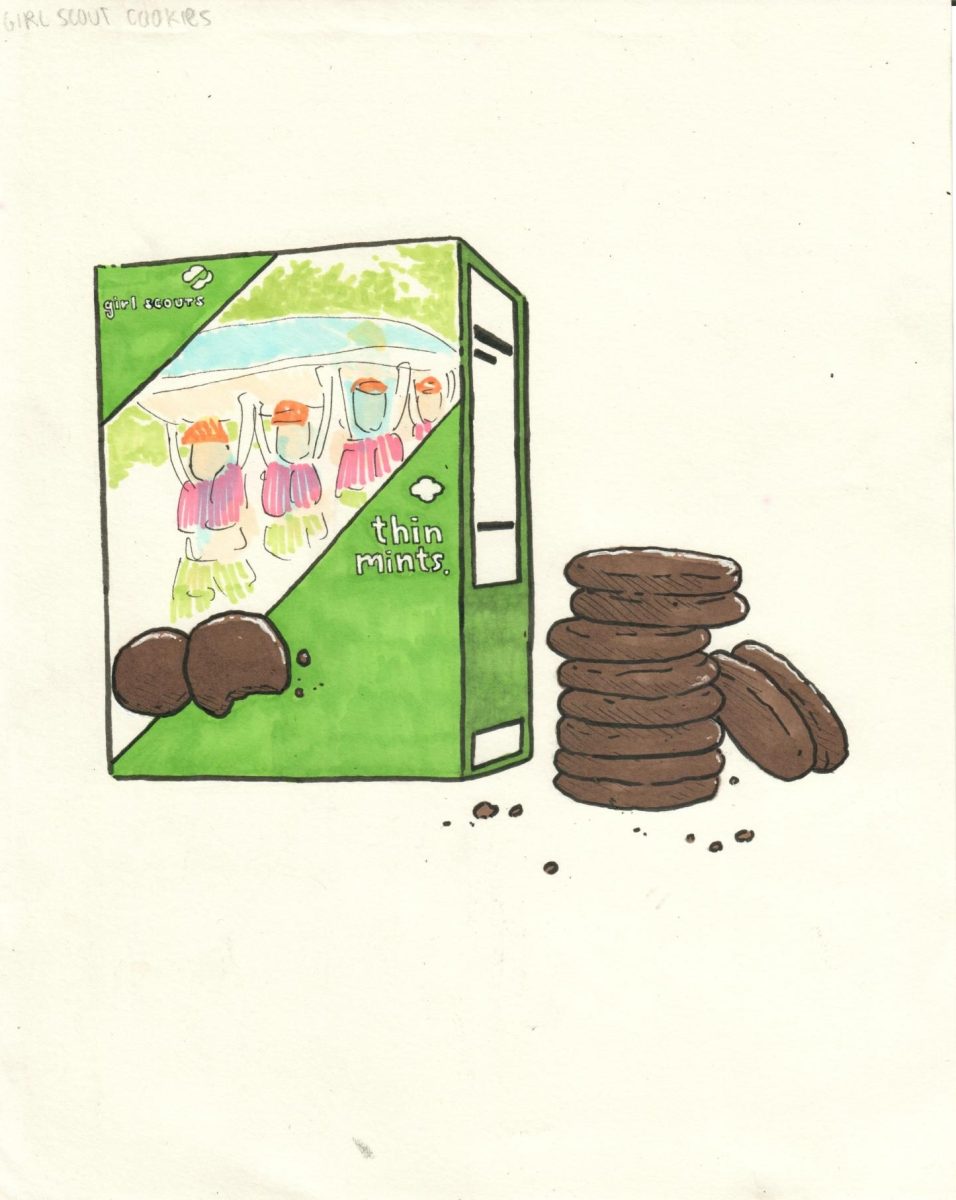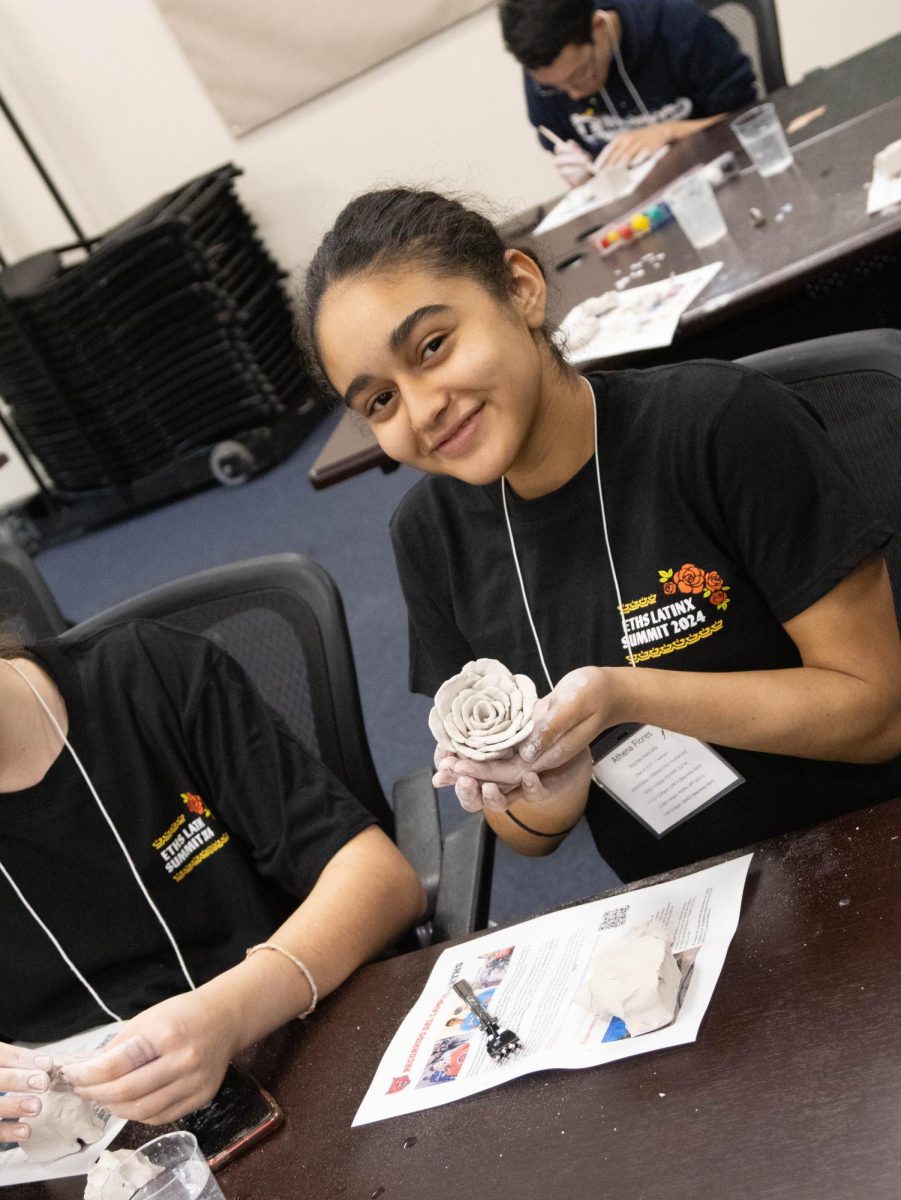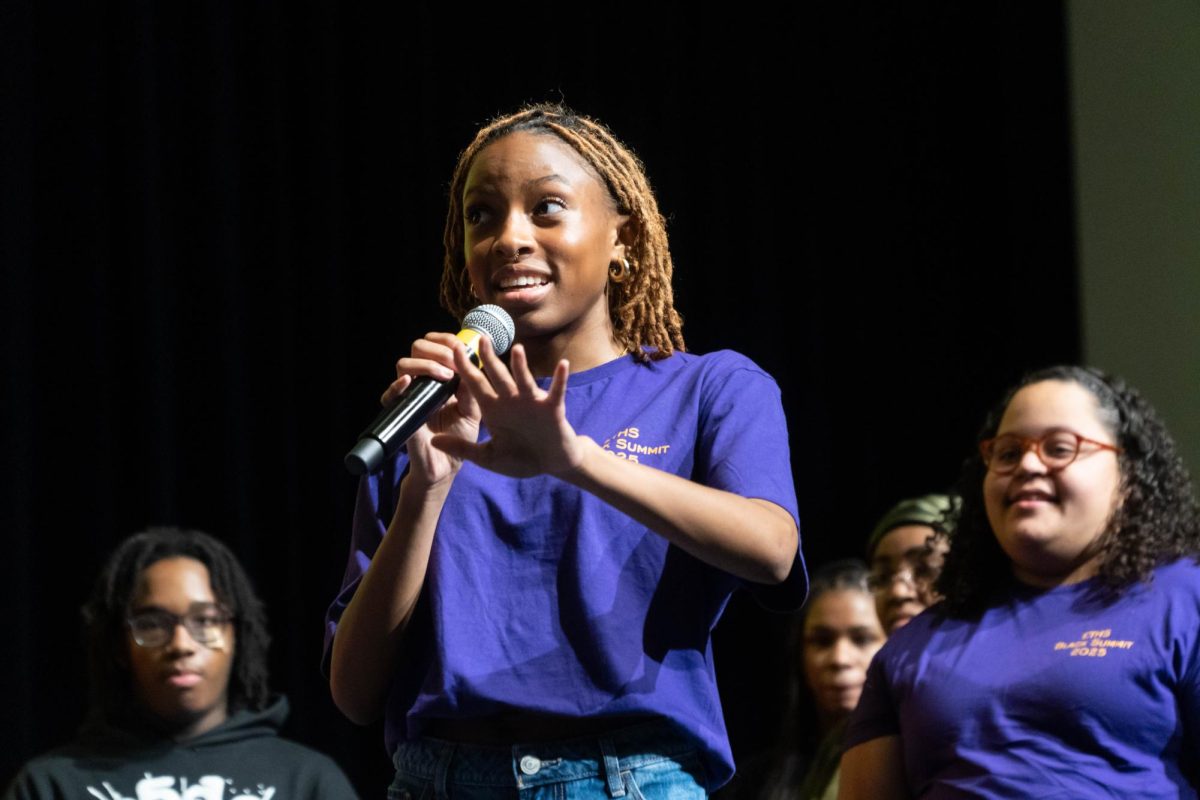With the Illinois primaries now behind us and the presidential election in November drawing closer every day, interest about the election and its results are mounting across the country, including at ETHS. Over the past week, hundreds of students participated in a mock election survey to help The Evanstonian gain a deeper understanding of ETHS’ viewpoints in regards to the election.

The survey, which reached students of various gender identities, ethnic backgrounds and political perspectives, was completed by over 180 students. Of these 180 respondents, 20 percent were seniors, 28 percent were juniors, 21 percent were sophomores and 31 percent were freshmen. About a quarter of respondents reported being eligible to vote in the presidential election come November; only 16 percent said the same about the primaries, which took place on Tuesday, Mar. 19.
Around 83 percent of respondents said that they would vote to re-elect current President Joe Biden in November; eight percent said that they would vote in the favor of former President Donald Trump. Another 3.5 percent elected to cast their ballots for another candidate, with the final five percent being uncommitted.
While ETHS students were overwhelmingly supportive of Joe Biden in the presidential election, the same could not be said for the primaries. Biden only narrowly scraped a victory here, capturing a mere 51 percent of the votes. In second place was, with 24 percent of the votes, the category for students who were “unsure” or “uncommitted.” Trailing both Biden and the “unsure” category was the “none of these” category, with 5.7 percent. In fourth place was democrat Marianne Williamson with 5.1 percent of votes, then republican Donald Trump and independent Robert F. Kennedy Jr. each with 3.4 percent, independent Cornel West with 2.8 percent, independent Jill Stein also with 2.8 percent and finally republican Nikki Haley, with only 1.7 percent of votes.

The age of Donald Trump (77) and Joe Biden (81) has received no shortage of attention in the news lately. When asked to assess their concerns regarding the mental acuity and age of the two candidates on a linear scale, with 5 being “very concerned” and 1 “being not concerned at all,” around two-thirds of respondents considered themselves a 3 or a 4. An additional 22 percent considered themselves a 5, with less than ten percent considering themselves a 1 or a 2.
In written comments to The Evanstonian, many respondents said that they voted for Biden simply because “he wasn’t Trump,” citing Trump’s personality and opposing political viewpoints, as well as his criminal charges, as reasoning. Indeed, a resounding 72 percent of respondents said that they believed Trump should be arrested for his role in the 2021 Capitol Insurrection. Eight percent of respondents believed that he should not be arrested, 12 percent were ambivalent, and another eight percent “didn’t know.”
In spite of his indictments and criminal charges, Trump has been leading Biden in preliminary polls, leading many to believe that he will emerge victorious in November. A different narrative was told at ETHS. 57 percent of respondents said that they believed that Biden would triumph in November; 38 percent said the same about Trump. About five percent were unsure, and less than one percent thought that another candidate would win.
The general ethos of the mock election was that of wariness. Many students expressed displeasure with both candidates and an unwillingness to vote for either of them. Others expressed fear about what the next four years may entail, while many more were frustrated with the Biden Administration’s actions concerning certain topics, such as the Israel-Hamas War. When asked to select which of the country’s top political issues were of the most concern to them, the majority of students selected gun violence (124 students), climate change (121 students), women’s reproductive rights (117 students) and healthcare (114 students).







